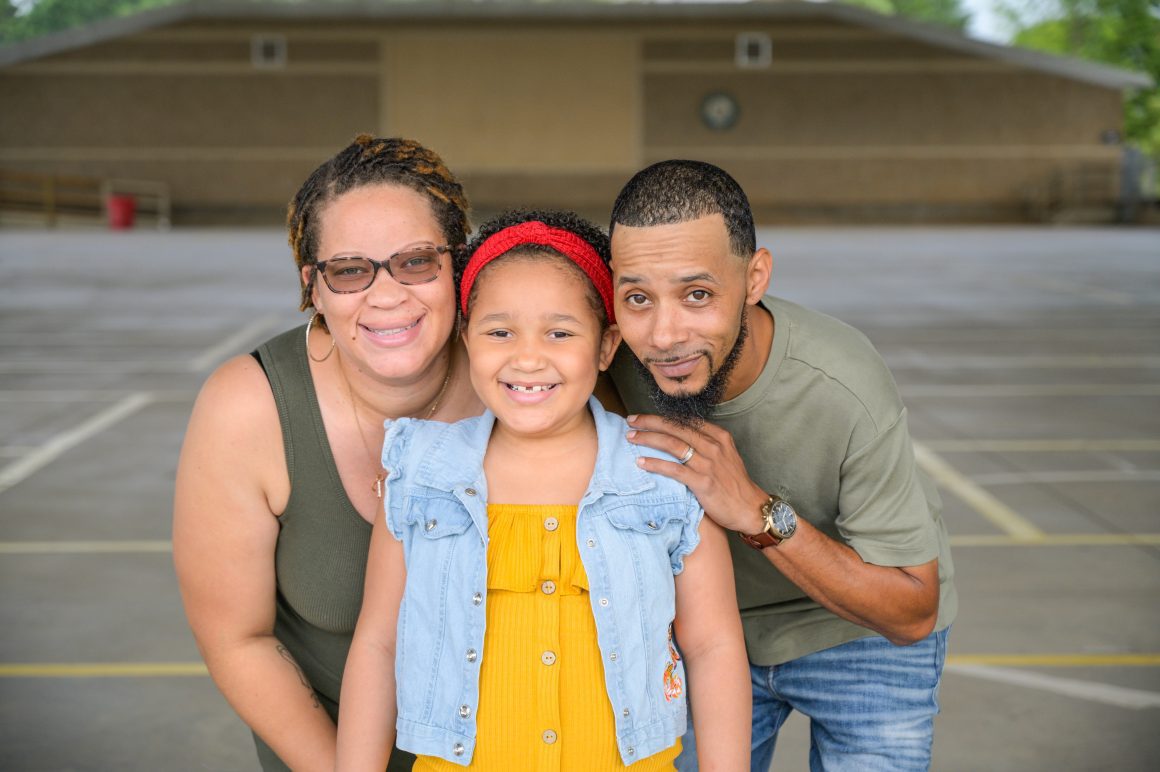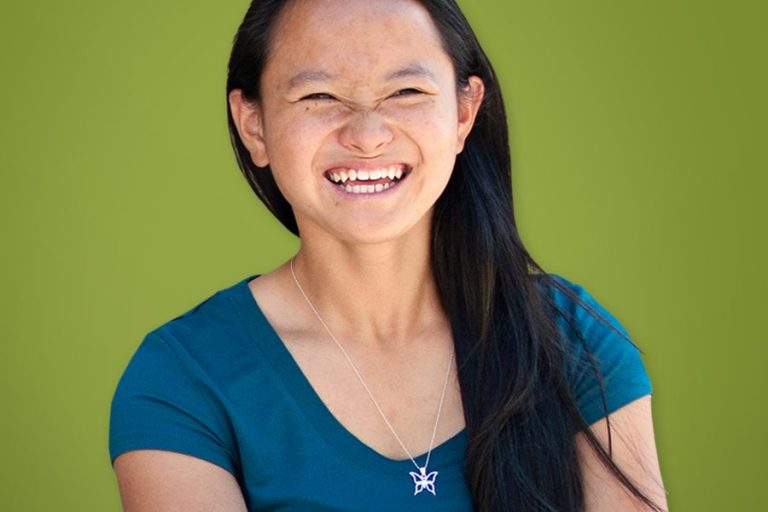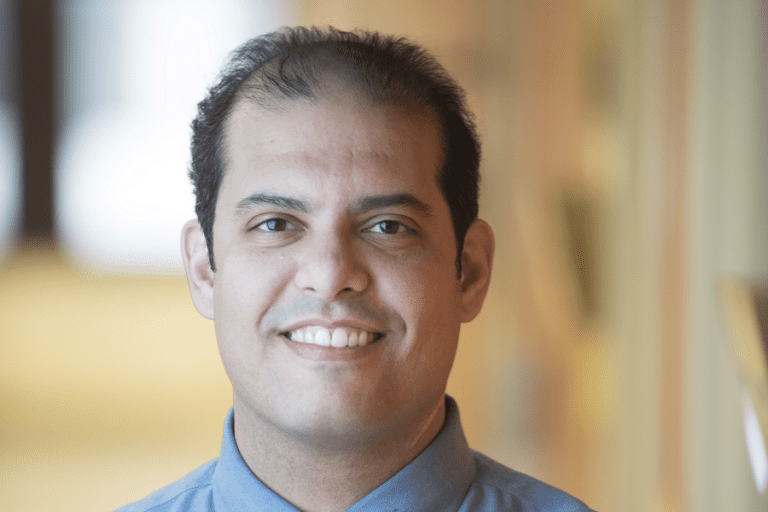Above: Amaiyah and her parents. Read Amaiyah’s Story – Beating a Brain Tumor
Caregivers are present at the beginning, middle and end of cancer. Caregivers are the people who go to the first doctor appointment for “just a quick x-ray” or “a routine blood draw.”
They are the people who answer the phone call from the doctor and tell their children that the routine check-up is no longer routine and that mutated cells are taking over their body. They hold hands during the port access and decorate hospital rooms with get well signs and homemade drawings from Mrs. Johnson’s 2nd grade class.
Caregivers pick up the clumps of fallen hair from the ground and buy new clothes as muscles deteriorate and weight is lost. They research protocols and second opinions.
Caregivers receive well wishes and not-so-helpful advice from strangers who truly mean well. They coax and beg their children to hold out their arms for IV’s and find the best nurse on the floor to access the vein.
They advocate. They love. They cry. They hold. They mourn. They are brave.
Read more: A Forgotten Thank You
As a cancer caregiver, you spent many hours supporting and caring for your loved one while they went through treatment. Now that your chapter of caregiving has ended and treatment is finished, you may feel uncertain about what to do next. Here are some tips that may help you during this transition time:
Be Aware of Your Feelings
Once treatment has ended, it’s normal to have many different feelings. Whatever you are feeling, whether it be anger, grief, exhaustion or anything else, is perfectly okay. These feelings are all normal and you can manage them by giving yourself time and space to reflect on your caregiving experience.
Make Time for Yourself
If you’ve been putting your own needs aside, this is a time to think about how you can best care for yourself. Setting aside time to recharge your mind and spirit can help you cope and get you back to doing the activities you once loved.
Let Others Help You
Try to share the load you carry every day with others who love you and your child. Don’t be afraid to ask for help or accept it when it’s offered – your friends and family want to help you. Allow the people around you to lift a little of the weight off your shoulders.
Talk with Family
Communication with your family is just as important now as it was during cancer treatment. Listen to one another, be patient and offer support when needed. Keep in mind that this time after treatment is new for every family member and each person may need time to adjust to this new chapter of life.
Adjusting to life after cancer treatment can be a slow process. You may not feel up to doing all of this right away – and that’s okay. Take the time to figure out what feels fulfilling for you and your family.
Start a fundraiser for kids fighting cancer
One of the best ways you can help a child with cancer is to start a fundraiser to raise money for cancer research. No fundraising idea is too big or too small to make a lasting impact in the life of a child with cancer.




